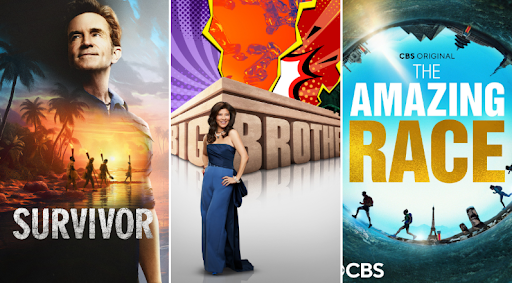When people hear “reality TV,” they think that it’s just a bunch of dramatic people fighting over dumb things. If you look a little closer, reality shows can actually teach you some important things, especially for students.
As a high schooler, I’ve learned more from shows like Survivor, Big Brother, and The Amazing Race than I ever expected. These shows are very entertaining to watch, and they teach life skills, emotions, and real-world issues you can’t always get from a school.
Take Survivor for example. The show puts 18 strangers on an island, makes them find their own food and shelter, and then gives them challenges to win rewards and immunity. The real heart of the game is strategy—knowing who to trust, who to vote out, and when to make your move. Players build alliances, read body language, think fast under pressure, and sometimes take huge risks. If you have ever had to work in a group project with people you didn’t choose, you’ve already had a taste of Survivor.
Big Brother can also provide life skills for high schoolers. Contestants live in a house with no phones, internet, or outside contact. They compete for power, form secret alliances, and try to avoid being evicted each week. Some people lie, some play loyal, and others just float along.
Watching how people play differently helps you understand different types of personalities—and maybe even your own. For high schoolers, Big Brother is helpful because it shows how people get along, make friends, and handle competition. Like the players, students deal with things like peer pressure, trust, and arguments. Watching the game helps you see what happens when people are honest or lie, work as a team or try to lead, and think smart or just follow others.
It can be real–
One of the best things about reality TV is that it’s full of real emotions. People cry, cheer, get frustrated, feel left out, and celebrate big wins. In Survivor, players break down from exhaustion or joy when they finally win something after days with no food, and in Big Brother, emotions run high because contestants are stuck in a house together for weeks. There’s no escape, so things get intense and it’s very real.
When Eva Erickson, the first openly autistic player on Survivor 48, had a panic attack during a challenge, it wasn’t edited out. Instead, the show showed how hard it was for her, but also how brave she was for finishing anyway. Watching people deal with hard emotions on screen makes it easier to talk about our own struggles. It’s like emotional practice. And we all need that.
It can be educational–
Some shows teach you facts in a fun way, like The Amazing Race which takes you around the world. In one episode, you’re in India racing tuk-tuks, the next you’re trying to herd sheep in New Zealand. With it, you learn about local customs, languages, food, and how people live there. This helps you understand the world better without it feeling like a boring lesson.
Survivor shows what happens when you don’t have food, shelter, or comfort—and how people adapt. Big Brother teaches you about body language, social dynamics, and even how to keep secrets or not.
I’m not saying it’s better than school, but it’s a cool thing that can help. You get real-world lessons while being entertained.
It’s a safe way to explore conflict–
Let’s be honest — high school has drama, people argue and fight, but that doesn’t mean you want to be in the middle of it. Reality TV gives you a way to explore drama without being part of it. You can see how fights start and why. You can ask yourself, “Would I do the same thing?” or “Was that fair?”, and watching people mess up is a good way to learn about what to do or what not to do.
It’s a way to connect with people–
Believe it or not, reality TV can help people bond. In my third-period class, a few of us started talking about Survivor 48, and now it’s a weekly thing. We share our ideas, predict who’s going home, and argue about who’s playing the best game. Some people even watch it with their families, and in a world where people are glued to phones or arguing online, it’s nice to have something fun that brings people together.
Overall, reality TV shows can be surprisingly valuable for students to watch. Even though many people see them as just drama and shouting, these shows often offer meaningful lessons about human behavior, decision making, and social skills. They can provide real-life examples of how people handle challenges, form relationships, and make choices, which are lessons that can help students better understand themselves and others.

Leave a Reply